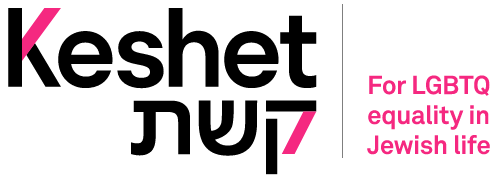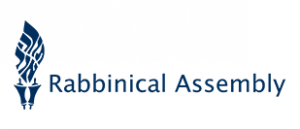Letting Go
Rosh Hashanah 5783
It all started with a conversation I had with some colleagues a few weeks ago. We hadn’t seen each other for many years, and we were catching up on the “good old days” - when I was in the first years of graduate and rabbinical school and they were in their last. It was so comforting and familiar to share stories that we hadn’t heard for years. After a while, reflecting on our teachers and our older colleagues, we began to talk about their legacies. We laughed as we imagined what our legacy might look like: A building named after us? A wing of the shul? A definitive book on an esoteric subject? Naw, that was the old days. Someone mentioned that our legacy was going to be defined by our individual relationships and not by anything physical. Our conversation moved on and one of my colleagues told us that after 30 years in his home, he and his wife had made the decision to move so that they could be nearer to some of their children and grandchildren. I couldn’t see his face, but I saw his eyes rolling upwards as he spoke about this move. As you can imagine, he and his wife and their four children (now out of the house and married), had 30 + years of furniture, books, pictures, tchotchkes, and memories to deal with. It was a full time job. What were they going to keep, what were they going to sell, what were they going to throw away, and most importantly, how would they decide? I felt myself squirm as he spoke of the boxes of his kids’ childhood which they refused to clear out - old college newspapers and memorabilia that my colleague would have to shlep and store in his new home. A decision kicked down the road until that time, hopefully in the far distant future, that the children would have to clean out their parents’ house. Yup. Been there. Was one of those kids.
I was struck by the timeliness of our conversation - looking at the past in light of the present, and making space for the future. As I pondered our light conversation, I suddenly realized how deep and spiritual it was. Reflecting on our own legacy - that is thinking about our impact on future generations; cleaning out our “houses,” the houses of our souls and their effect on our everyday actions; deciding what to keep and what might be better to let go, and finally, thinking about what is on the bookshelves of our lives, what knowledge do we deem important and what image of ourselves do we want on display - all hit me as the work and focus of Rosh Hashanah and Yom Kippur. Isn’t that we are called upon to do at this very moment? To really look at our lives and determine what is important to us and why? To rid ourselves of the stuff we no longer need, or that don’t serve us well, things that, once they are gone, will actually make more space for new possibilities? As we move into a new year, it might help to think of it as though we are moving into a new house. The task is not easy - in fact it can be painful even though we have made the choice to move. But it is not impossible. Fortunately, our sages gave us the opportunity to take on this task with baby steps. Each day at the beginning of the morning services, we are reminded to reflect on these things:
רִבּוֹן כָּל הָעוֹלָמִים לֹא עַל צִדְקוֹתֵֽינוּ אֲנַֽחְנוּ מַפִּילִים תַּחֲנוּנֵֽינוּ לְפָנֶֽיךָ כִּי עַל רַחֲמֶֽיךָ הָרַבִּים,
מָה אָֽנוּ מֶה חַיֵּֽינוּ מֶה חַסְדֵּֽנוּ, מַה צִּדְקוֹתֵֽינוּ, מַה יְּשׁוּעָתֵֽנוּ, מַה כֹּחֵֽנוּ מַה גְּבוּרָתֵֽנוּ
Lord of all the worlds! Not on account of our righteousness do we fall down and offer our supplications before You,
but on account of Your abundant mercy. What are we? What is our life? What are our acts of kindness?
What is our righteousness? What is our deliverance?4 What is our strength? What is our might?
As everyone who knows me will tell you, I will have an awful time moving. I have a hard time letting go of my possessions. I keep all gifts, all books, all my notes from College, in fact, I keep most things. I’m not a hoarder, but once something is in my possession, I usually find a place for it, and there it will remain. On the other hand, when Kate first started here, she carefully and painstakingly went through all the files in her office and beyond, saving a few papers that might be important, archiving files that needed to be archived, and throwing away the rest. And then…then she organized the computer system so that files could be found and used and erased when they were no longer relevant. It practically gave me chills - what if, maybe…at some point in the future, she needed that piece of paper!! Me? I have an almost overflowing filing cabinet in my office. I had an awakening the other day when a conversion student came to study. I remembered that I had a list of questions in my files that I thought would be helpful. So I went out into the office and made a few copies - so I would have extras - and gave her one. She looked at it and asked, “when I have some time, would you like me to make this into a Google Doc?” It was a revelatory moment for me. I thought of Kate. Of course it made sense - saving paper and space and making the content much more accessible to everyone, but it didn’t even occur to me until she said something! Letting go of old ways is hard. Sometimes it takes someone else’s perspective to shift our minds. It also takes some humility to be able to reflect on our own actions honestly; and then come the feelings of vulnerability, when we recognize that new ways and new choices put us in a position where we don’t have the old way to fall back on. We have to learn a new approach, we have to let go. Perhaps that is why the morning prayer begins with "it is not because of our righteousness that we cry out before You;" rather, it is with our humility and vulnerability that we reach out to God, or deep into ourselves, appealing to both God’s compassion and to our own. For it is only through humility and compassion that we are able to hear other’s suggestions, and then overcome our vulnerability. And lest we forget, and believe that our importance or our place in the natural world is too great, our daily prayer goes on to remind us where we actually stand in the universe:
,מַה נֹּאמַר לְפָנֶֽיךָ יְהֹוָה אֱלֹהֵֽינוּ וֵאלֹהֵי אֲבוֹתֵֽינוּ הֲלֹא כָּל הַגִּבּוֹרִים כְּאַֽיִן לְפָנֶֽיךָ וְאַנְשֵׁי הַשֵּׁם כְּלֹא הָיוּ וַחֲכָמִים כִּבְלִי מַדָּע וּנְבוֹנִים כִּבְלִי הַשְׂכֵּל
What can we say before You, Adonai, our God and God of our ancestors? Are not all the mighty as nothing before You?
Famous people as though they had never been? The wise as if they were without knowledge?
And people of understanding, as if they were devoid of intelligence?
כִּי רוֹב מַעֲשֵׂיהֶם תֹּֽהוּ וִימֵי חַיֵּיהֶם הֶֽבֶל לְפָנֶֽיךָ, וּמוֹתַר הָאָדָם מִן הַבְּ֒הֵמָה אָֽיִן כִּי הַכֹּל הָֽבֶל
For most of their actions are a waste, and the days of their life are trivial in Your presence.
The superiority of man over the beast is nothing, for all is futile.
That last line was from Kohellet, Ecclisiates. He was a bit overdramatic, yet the point is well made. Humility, knowing that we will feel vulnerable, and most of all having compassion, both towards ourselves and others, are necessary for a big move.
Still, we need to actually get rid of some “stuff” before we move. For some of us, letting go of things can be so difficult. One of the reasons, as I mentioned before, is that whatever the “it” is, we worry that there will come a time when we wish we had it. Whether it is a book, a box of memorabilia, or a character trait, it once felt important or comfortable to have, and, who knows, maybe in the unknown future it may be important to hold onto something we once knew well. If it served us well in the past, there is always the possibility that we will need it again. And so I force myself to ask, is it worth the space to hold onto something "just in case?" Perhaps I am only holding onto a wish or a dream that probably won’t come to fruition. Can I let it go and make room for something else? One of my colleagues in our discussion told us that his office at the shul was being remodeled so he needed to make some choices. As he looked through his files, there was that program; the one that was going to change the Jewish world, the one that was so well conceived that it would bring all those present the knowledge and understanding that would bring them forever close to God and Judaism. We all laughed. We all have that file. The one that will change the world. Yet we all know that one program or a few brilliant ideas are not going to change the world. What would happen if we were to throw away that file? Would our great ideas or our best intentions go for naught? Which also brings me back to our legacy. For the majority of us, our legacies aren’t going to be made from having the best idea, the biggest library, the most money or the loudest voice. Rather our legacy will be defined from our relationships, our good deeds and the way we live our lives daily. In other words, laugh at yourself a bit when you decide to keep those things that you believed would change the world. If they were world changers, by all means keep them and use them over and over again. And if not, maybe it is time to let them go, and make space for new ideas and new possibilities.
In many ways, the stuff that we hold onto, both the physical and the intangible, define us. Letting go sometimes causes us to look at who we are in the present and evaluate whether that is what we want to be. Another colleague said that after some long reflection, he realized that his bookshelves represented the Rabbi he was supposed to be, and not the Rabbi he became. He was not the rabbi who spent all his time in the office pouring over the Talmud, the legal codes and all the esoteric books of his predecessors, though his bookshelves gave out that impression. Going through his books when he moved was an enlightening life experience for him. So I looked at my shelves. Now, I truly love books. I love to hold them in my hands, I love to carry them around, I love to pile them beside my bed and I love to see them in my office and at home. The fact is, I do use and enjoy books. Only most of them probably reflect the aspirational me. As many of you know, I was an English major in college. When the book lists came out for my classes, I bought every one….with the intention of reading every one. Every time I’ve moved, I’ve carried those books to my new place. I’ve read or skimmed some and I still plan on reading them in the future. Occasionally, I will look something up in my Talmud, or in my other rabbinic books, but upon reflection when I purchased them, in some ways I wanted to promote an image. They were the books that I was told I had to have - even if I couldn’t read them yet. I’m sure that I wanted my library to look like the libraries of rabbis before me. There is a famous story about Reb Zusha, a disciple of the Maggid of Mezeritch (18th CE). As he lay dying, his students found him in uncontrollable tears:
They tried to comfort him by telling him that he was almost as wise as Moses and as kind as Abraham, so he was sure to be judged positively in Heaven. He replied, "When I get to Heaven, I will not be asked Why weren't you like Moses, or Why weren't you like Abraham. They will ask, Why weren't you like Zusha?"
Moving into a new spiritual house means examining who we really are and determining what of our aspirations are attainable. It might mean freeing ourselves of other’s expectations and our own unattainable dreams so that we can take on new dreams; dreams that truly reflect who we are and what we truly value. We are constantly changing and growing and maturing. Our goals change, perhaps our situations change - whether it is because of health, or a new position, or a new child or new family member. Change includes letting go
Marie Kondo tells us that we should “keep only those things that speak to the heart, and discard items that no longer spark joy.” Judaism suggests that we should keep things that give us purpose, that keep us real, and that reflect who we are. I want to share one more line of that morning prayer with you. If you remember, the last line we looked at said, “The superiority of man over the beast is nothing, for all is futile.” To which the author answers:
אֲבָל אֲנַֽחְנוּ עַמְּ֒ךָ בְּנֵי בְרִיתֶֽךָ
BUT, aval, we are Your people. The children of Your covenant
Humility, compassion, vulnerability and the knowledge that we are intimately connected to the Divine help us to clean out our houses and let go of the things that don’t serve us. We are partners with God, we are in this life together, we are not alone.
A credit card company asks us, “What’s in your wallet?” Rosh Hashanah and Yom Kippur ask us, "what’s on your bookshelf, what’s in your files and in your house. What is in your soul?" We probably won’t get it completely right. We will probably wish we hadn’t rid ourselves of something, or kept things that we should have given away, but we will find that we have the capacity and the strength to do just fine, both in our physical houses and more importantly, in our spiritual homes… and our descendants won’t have to clean up the mess.



